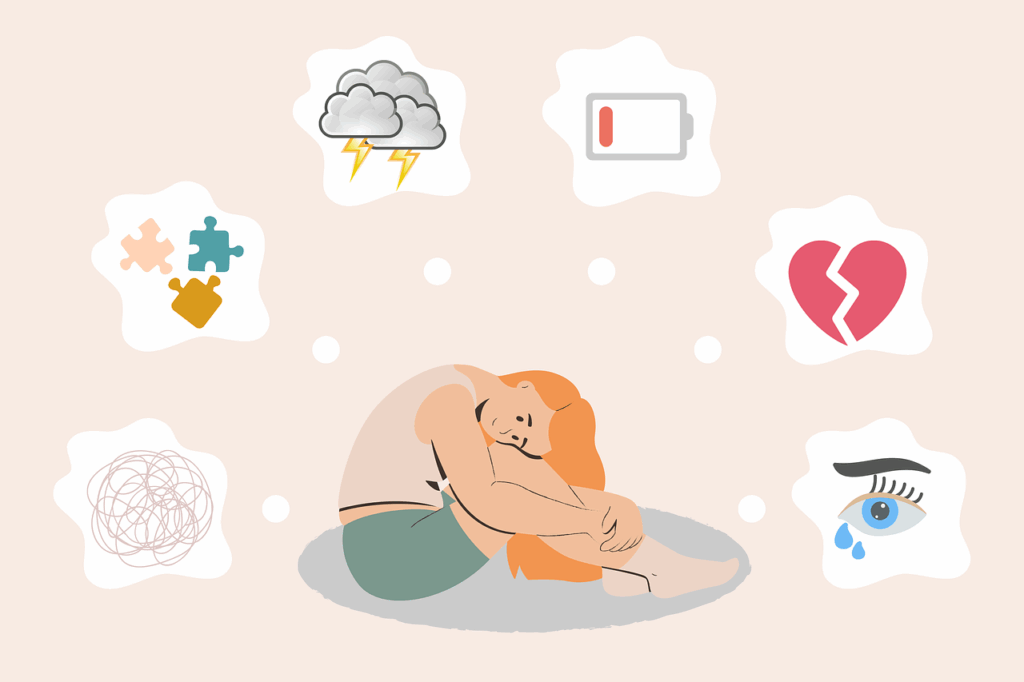Struggling with self-esteem can feel like living in the shadows of your own life. Why can we feel confident in some areas but unsure of ourselves in others? It is not uncommon to feel self-assured, capable and competent in one area of life, like work, while feeling inadequate and questioning our worth in other areas, such as our relationships. We might lead teams, meet deadlines and achieve goals, only to come home and feel small, unseen, or unsure of ourselves. Having low self-esteem isn’t often obvious. It doesn’t always show up like insecurity or self-doubt on the outside. Many of us appear confident and successful to others, while internally, we carry a deep belief that we are “not good enough”. Subconsciously, we may create ways to hide our low self-esteem behind a protective mask. We keep busy, taking care of everyone else, or striving to meet unrealistic expectations, just to keep others from seeing the self-doubt we carry inside.
Some common signs of low self-esteem
You may find yourself caught in a cycle of negative self-talk, ruminating on past conversations, doubting your choices or fixating on what you should have said or done differently. Your inner critic whispers, “you’re not good enough” or “you always mess things up”. It can feel hard to trust yourself or find peace within.
You often compare yourself to others, feeling you should be further along in your life journey – owning your home, having a career, or being in a settled relationship. You feel that others have it all figured out and this leaves you feeling anxious.
Accepting compliments can feel difficult. When someone acknowledges something positive about you, you feel uncomfortable. You might minimise it or brush it off, questioning whether they really mean it or if they’re just being polite.
Having a fear of failure or rejection means you avoid new experiences, challenges and social situations. Instead of setting boundaries, you people-please, saying yes when you mean no, trying to keep others happy, so you can feel accepted. Over time, this creates resentment towards others and yourself.
You carry a deep sense of inadequacy and often question yourself. To hide this, you may strive for perfection, hoping it will make you feel good enough. But instead of satisfaction, it often leads to exhaustion or burnout.
What if this is not your “fault”?
Low self-esteem doesn’t just appear suddenly and begin with something we did wrong. It is shaped by our early experiences, learned beliefs, or patterns created over time. The messages we’ve internalised over the years, from parents, teachers, peers and society, shape how we see ourselves and how we value our worth as adults. Let’s ask a question. Were you often criticised, judged, or did you feel you had to work hard to be accepted when growing up? Did you experience bullying or unrealistic expectations from your caregivers? If yes, then very likely, those early experiences and developmental wounds left lasting imprints and have shaped how you perceive yourself today. As an adult, you may still carry these early imprints as they become part of your sense of self.
It is also possible that you received excessive praise from your caregivers, but without any real constructive feedback. You were a hero child, could never do anything wrong. Now as an adult, you rely on external validation from others and struggle to feel good without constant reassurance. If you were told, “you’re amazing” repeatedly with no space for reflection when you made mistakes, you may not have learned how to cope with challenges or imperfections. Today, even small setbacks can feel overwhelming, stirring up waves of self-doubt, anxiety, or fear of taking risks.
We all have inherent worth
Regardless of your previous experiences, you are worthy of feeling good about yourself. Healthy self-esteem means appreciating ourselves, even when we don’t do things perfectly, when we make mistakes and when we’re fully aware of our imperfections. It’s about accepting ourselves as we are, with self-compassion. It’s about forgiving ourselves for making mistakes. It begins within and it radiates outward, to our relationships and how we move through the world. However, no relationship, achievement, or outside source can “fix” us or make us feel worthy. That work has to come from within. The voice of healthy self-esteem says, “I know I’m not perfect and I make mistakes, but I still matter. I’m worthy”.
The Path Forward
It’s important to understand that experiencing low self-esteem doesn’t mean you’re broken, faulty, or weak. Improving your self-esteem is possible, but not with quick fixes. It is a journey of self-discovery, healing and growth. It is a journey of returning what doesn’t belong to you and reclaiming your preciousness. It is about reconnecting with your younger self, the one who now needs your compassion and love. This isn’t about being perfect. It is about embracing who you truly are and exploring the attachment wounds, reflecting on your patterns that were formed early in your life. Understanding where these patterns come from and how they show up is the first step in healing. The good news? Self-esteem can be rebuilt, with support, self-awareness and small changes.
If this resonates with you, you are not alone. If you’re ready to take the first step, counselling can be a powerful part of that journey.Please reach out if you have any questions or want to improve your relationship with yourself and thereby with others.



